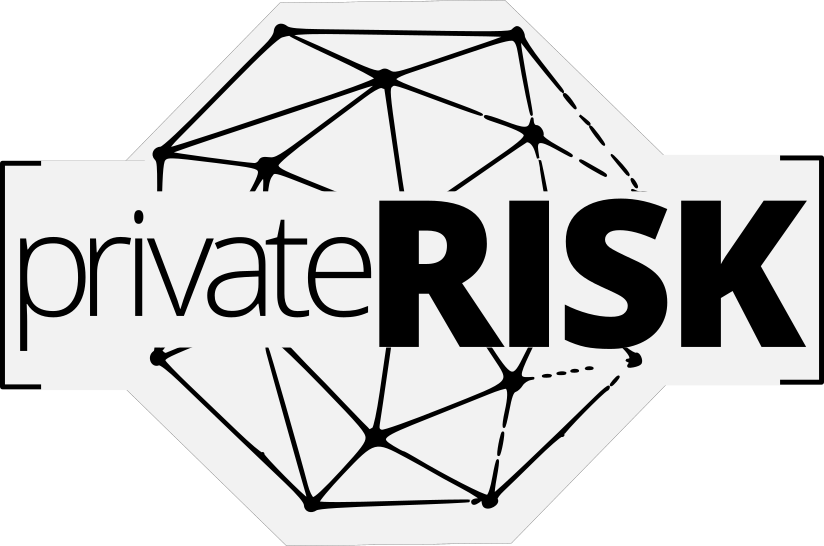Identity Theft: A COMPLETE GUIDE FOR PRIVATE FAMILIES

What should you do to dissuade thieves from targeting your identity? What should be done when your social security number is compromised?
Nowadays it seems massive data breaches are becoming more norm than not. Though no need to worry! We have a few best practices and industry insights which will help keep you and your family safe and focused on your lives.
This article is a primer for families and individuals which will provide a foundation of knowledge and best practices for protecting your identity and handling a crisis scenario.

What Is Identity Theft?
Nowadays the term identity theft seems to be in the news almost daily and has become synonymous with
TYPES OF IDENTITY THEFT
Physical Thefts
- Driver’s License Theft
- Social Security Number Theft
- Mail Theft / Mailbox Fraud
- Credit & Debit Card Theft
Digital Intrustion
- Online Shopping Fraud
- Internet of Things (IOT) Theft
- Account Takeover / Compromise
Identity Fraud
- Medical Records Theft
- Criminal ID Fraud
- Synthetic Identity Fraud
- Senior Fraud and Scams
- Child Identity Theft
- Employment Identity Fraud
Tax & Loan Fraud
- Tax Record / Tax ID Theft
- Loan Stacking Fraud
- Mortgage Fraud
- Auto Loan Fraud
Scam and Fraud Videos from The FTC
Watch these videos for insights into how scammers target you and your loved ones
Physical Thefts
Drivers License Identity Theft
The most common type of ID theft, lost or stolen drivers licenses can lead to anything from fraudulent credit cards or loans being opened in your name to traffic fines or criminal reports tagged to your name.
Social Security Number Theft
Most of us have had our SSNs compromised from one of the large data breaches that
Mail Theft & Mailbox Fraud
Stolen mail is one of the original ways criminals would steal your identity. Commonly referred to as mailbox fraud, stealing your mail or having mail sent to your address in another’s name, is a tried-and-true method for criminals.
Credit & Debit Card Theft
A lost credit card should be reported immediately to help prevent fraudulent charges from hitting your accounts. However, in some instances, criminals may use your identity to open a new card they have access to. Be wary of how you dispose of all those pre-screened offers.
Also, leave your debit card at home when shopping. It is harder to get reimbursed for cash loss or fraudulent ATM charges than to have a credit card company remove charges. Unless, of course, you have the correct insurance partner.
How Do You Stop Junk Mail?
You can register with the Direct Marketing Association at TheDMA.org and have your name stricken from the record. Stop those annoying mailbox stuffers! Note that the U.S. Postal Inspector directs you here so it is safe to use.
Looking to stop junk email? The DMA also has a master list for email solicitation which will remove you from
Looking to stop telemarketing calls? Register with the Federal Trade Commission’s National
Looking to report email or international scams? Register with the International Consumer Protection and Enforcement Network at www.econsumer.gov
DIGITAL INTRUSION
Online Shopping Fraud
Getting your physical card stolen is pretty passe by today’s standards. Now,
Internet Of Things Fraud
With so many of our smart devices capturing our data, be it passwords, fingerprint, voice recognition, or photos, smart criminals are finding ways to gather this data and use it to impersonate us.
Account Takeover Fraud
This is a blanket term referring to a bad actor gaining access to a digital account and pretending to be you. Using an Amazon account and having items shipped to their address is a common example.
Identity Fraud
Medical Records Theft
Similar to child ID theft, medical records are highly desirable. Many times criminals will use your info to get treatment using your name and benefits. Other times, they may use a young child’s ID to begin a clean medical history. Be sure to monitor your medical records and explanation of benefits (EOB) statements.
Criminal ID Fraud
When a criminal is arrested and gives your identity to law enforcement and creates a criminal record under your name.
Synthetic Identity Fraud
This is the modern grail of ID theft, criminals piece together real and
Senior Fraud
According to the Federal Trade Commission, 37% of U.S. citizens age 60 or older reported fraud to the FTC in 2016. 20% of those were Identity Theft.
Child Identity Theft
While exactly the same as theft of anyone’s identity, children are a juicy target for criminals since they have no credit history and are rarely on the radar for fraud. Be sure to check your children’s SSNs annually.
Employment Identity Fraud
Akin to criminal ID fraud, employment identity fraud occurs when a fraudulent identity is used to apply for a job. This is why we recommend running a background check on all employs your family hires.
Tax & Loan Fraud
Tax Record/ Tax ID Theft
One of the most frustrating to deal with, tax ID theft occurs when a criminal uses your SSN, often with fake and inflated income values, to file a tax return and get a refund check.
Loan Stacking Fraud
With so many “instant approval” credit cards or lines of credit being offered by retailers, criminals can quickly open a
Mortgage Fraud
Less likely to be part of a stacking fraud scam, mortgages can be opened in your name by a criminal. Consider setting a credit freeze to help prevent this from happening.
Auto Loan Fraud
Similar to mortgage fraud, auto loans can be opened using your identity and once the criminal drives off with the car they may never be found again.
What Should You Do If Your Identity Is Stolen?
If you believe you are a victim of identity theft, time is of the essence. You want to begin reporting this immediately. Prompt reporting will minimize the severity of the fraud.
Here are tips on how to handle this-
File A Police Report
Filing a police report affirms the theft is aides in removing fraudulent charges, getting out of fake loans opened in your name, and rebuilding your credit.
File A Complaint With the FTC
Registering the issue with the Federal Trade Commission’s Identity Theft team to assure smooth navigation through the process. They will give you a customized response and action plan based upon your specific scenario.
Contact Your Credit Card and Banking Companies
Let your bank and credit card vendor know you have been compromised and have them issue new cards and account numbers. They will also mark your file to assure suspicious charges are not held against you.
Freeze Your Credit
If you have not done so, consider placing a hard freeze or fraud alert (soft freeze) on your credit to prevent transactions occurring under your Social Security Number. You will need to do this with each credit bureau.
Notify Your Health Insurer and Healthcare Provider
If you or a family member’s medical records are compromised, be sure to let your doctors and insurers know. Also, get copies of your medical records to assure they are accurate. If you believe your records were compromised by your insurer or healthcare provider, you can file a complaint with the U.S. Department of Health and Human Services at 1-800-368-1019
Check Your Credit Report
You should be checking your reports annually but in the wake of an identity theft incident, be sure to get a fresh version of your credit report. You do this at AnnualCreditReport.com— the site sponsored by the three big credit bureaus. It is the only online credit report tool recognized by the FTC.
WHAT SHOULD YOU DO IF YOU ARE THE VICTIM OF A DATA BREACH?
Whether it is a credit bureau, major retailer, or the federal government, the fact is that most of us have already been compromised in some way. If you receive a notice from an entity stating you are breached, follow all of the steps listed above
How Do I Freeze My Credit?
You will need to contact each credit bureau to enable a freeze to your credit. These three credit agencies are listed below with links to their sites-
Equifax
Equifax.com/personal/credit-report-services
800-685-1111
Experian
Experian.com/help
888-EXPERIAN (888-397-3742)
Transunion
TransUnion.com/credit-help
888-909-8872
WHAT IS A FRAUD ALERT?
A credit freeze locks down your credit. Period. Nothing can be transacted until you personally release the freeze.
WHAT IS A CREDIT FREEZE?
A credit freeze locks down your credit. Period. Nothing can be transacted until you personally release the freeze.
What is the difference between a
Credit Freeze And A FRAUD ALERT?
Both tools are instrumental in protecting against and responding to fraud. But which solution is right for you?
Federal Trade Commission Identity Theft Incident Map
Additional Learning
As you continue learning about managing property risk, the additional chapters in our guide will prove to be invaluable resources.
Check back for our PROPERTY RISK analyzer
Check back for the release of our property risk analysis tool.
Be the first to KNOW
Get Breaking News, Trends, and Advice
privateRISK.org

